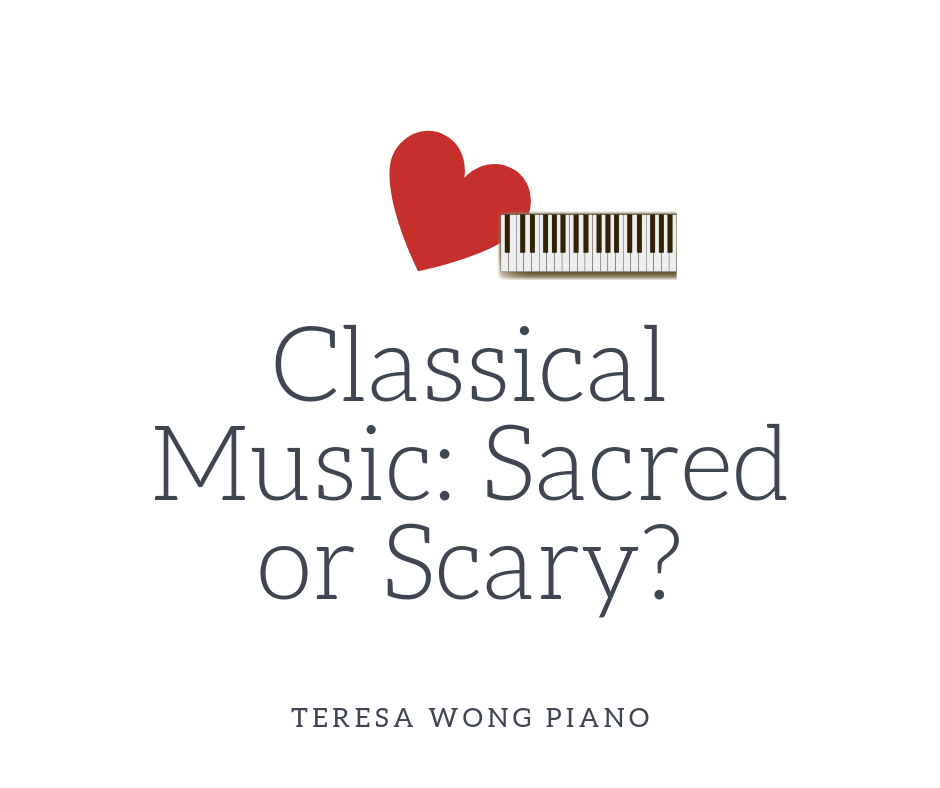
There is a general misconception about classical music.
“It’s boring.”
“It’s for the elite.” (“high-class”).
“It’s old. Who wants to listen to that?”
“I don’t understand it.”
“I don’t play an instrument, so I don’t get it.”
Classical music is just another music genre, like jazz, hip hop, rock, pop, world.
Of course, in the hearts of “classical people” – meaning the classical musicians and connoisseurs, classical music is “unique”, “pristine”, even “sacred”, like the untouchable.
I like to think there is something special with classical music of course, with my own background of years of classical music training and study. Even I like many kinds of music, classical music does have a special place in my heart, there’s no doubt about it. But I also like to share with people who are interested in learning and listening to it more, because there’s nothing “scary” or “boring” about classical music at all. In fact, once you get a hang of it, you would start to be able to appreciate it more, and would bathe and rejoice in the beauty of it, that I can assure you of.
Now, where do we start?
Let’s start from singing.
Who doesn’t like to sing? Who can’t appreciate a good singing voice, even one thinks they cannot sing?
I enjoy listening to vocal music, be it solo or choral. I am quite inclined to listening to choral music though -perhaps due to my training as a choral conductor – from a cappella to chorus with a full on orchestra. My favorite choral music would be gregorian chant and mass, then followed by some beautifully harmonised “modern”choral songs.
Now how do you listen to the music here?
- Listen with an open mind – forget about what kind of music it is. Just listen and feel. And ask yourself, “do I like it? why?”
- Find out more about the music – google it, who wrote it? who sang it? is there any story to the music/about the composer – there’s always some story, at least if there’s lyrics, you can appreciate the words.
- If you know how to play an instrument and understand some music theory, then you can find out some basic structural information about the piece. Or simply, listen to the ebbs and flows of the music. Or, if there’s more than one instrument, can you hear what’s there? How do the different instrumentation come together, and how do they interact with each other?
So here are some of my favorite, please enjoy:
First, some good old fashioned piano solo music, everyone’s favorite! :
Famous nocturnes by Chopin:
Now, some choral music with piano accompaniment, some more harmonized, easy listening and “modern”:
And here is some unaccompanied (“a cappella”) mass, it’s for me very healing and almost spiritual experience listening to this kind of music:
Much blessings in music,
Teresa